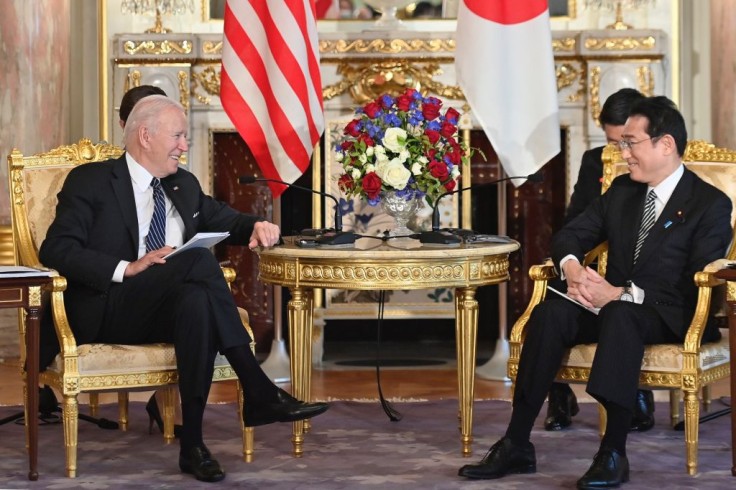
In partnership with Joe Biden's NASA, Japan's space program announced their shared ambition of boosting the Land of the Rising Sun's presence in space.
During Joe Biden's visit to Japan, the two countries plan to work closely together to realize a future moon landing — but this time, we may see a Japanese astronaut's footprints.
The U.S. is pleased with Japan's space ambitions and investment in the country's space program as it seeks to maintain its lead over China in a potential new space race.
Japan's Partnership With Joe Biden
Japan's space program will now include itself in the NASA Artemis program of the U.S., as announced by Prime Minister Fumio Kishida and President Joe Biden.
The two countries are reported by Kyodo News to include a plan to conclude a pact in 2023 to expand their bilateral relations in space exploration over the next several decades.
Prime Minister Fumio Kishida said, "We are aiming to realize a lunar landing by a Japanese astronaut in the latter half of the 2020s." The two governments are currently preparing a detailed fact sheet outlining the bilateral relations.
In particular, Japan's Japan Aerospace Exploration Agency (JAXA) and America's NASA are working with their shared intention to have Japanese nationals be part of the crew for the upcoming lunar mission of NASA within this decade.
Japan aims to become the second nation to successfully land an astronaut on the Moon. JAXA's plan to be included in the lunar mission was first announced a few years ago, in October 2019.
Japan's space program, aiming to be a powerhouse in aerospace, does not just have a partnership with NASA. It also has ongoing programs with the European space agency (ESA). Both ESA and Japan have an ongoing collaboration that intends to transport supplies using unmanned supply craft.
Japan Space Agency
Japan's space program has a robust space program primarily concerned with creating launch vehicles and space probes. However, it does not have a human flight program, so it has depended on the United States and Russia to transport its astronauts into space.
There have been more people from Japan aboard the International Space Station than from the United States or Russia.
In line with the country's goal of space expansion, JAXA resumed the recruitment of astronaut candidates last year for the first time in more than a decade to rejuvenate its pool of astronauts nearing their retirement years.
In addition, Japan plans to cultivate its space industry's startup scene, just like the U.S. has done with SpaceX, Boeing, Axiom Space, and many more. Japan has a space startup company called Ispace that is developing landers and rovers for lunar exploration, and Astroscale is a company that removes debris from outer space.
As reported by Reuters, after the end of World War II, Japan's aerospace industry was dismantled. However, the country has since fostered the growth of its space industry through the efforts of industrial heavyweights such as Mitsubishi Heavy Industries (MHI) and Mitsubishi Electric.
MHI rockets launched from the Tanegashima Space Center have successfully delivered payloads. Some of these payloads are the Michibiki satellites which have helped improve the U.S. global positioning system (GPS) in Asia.









